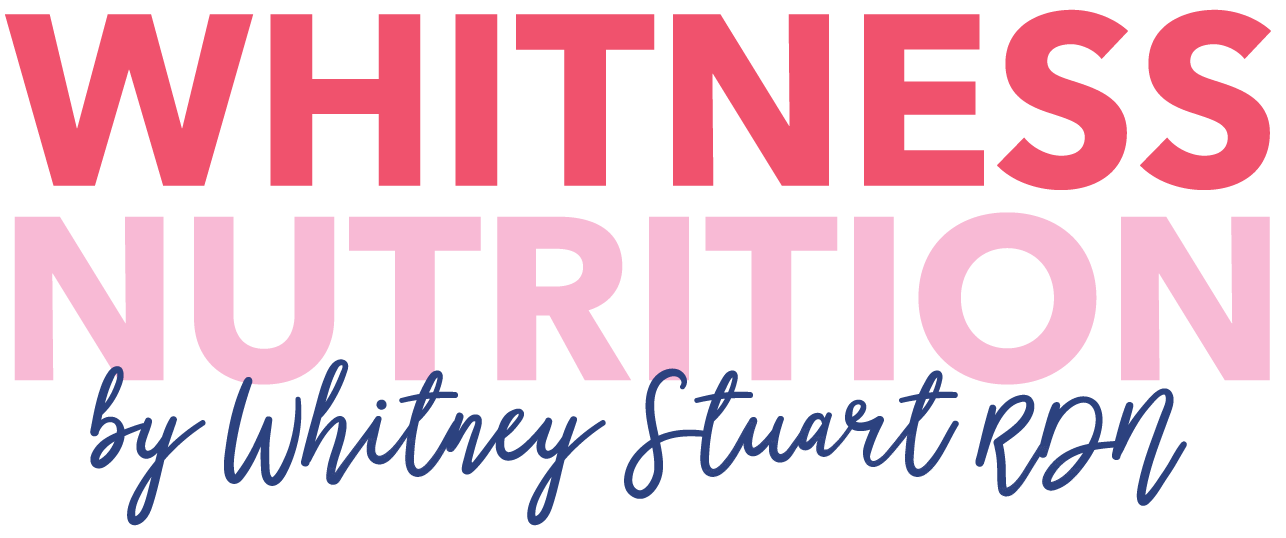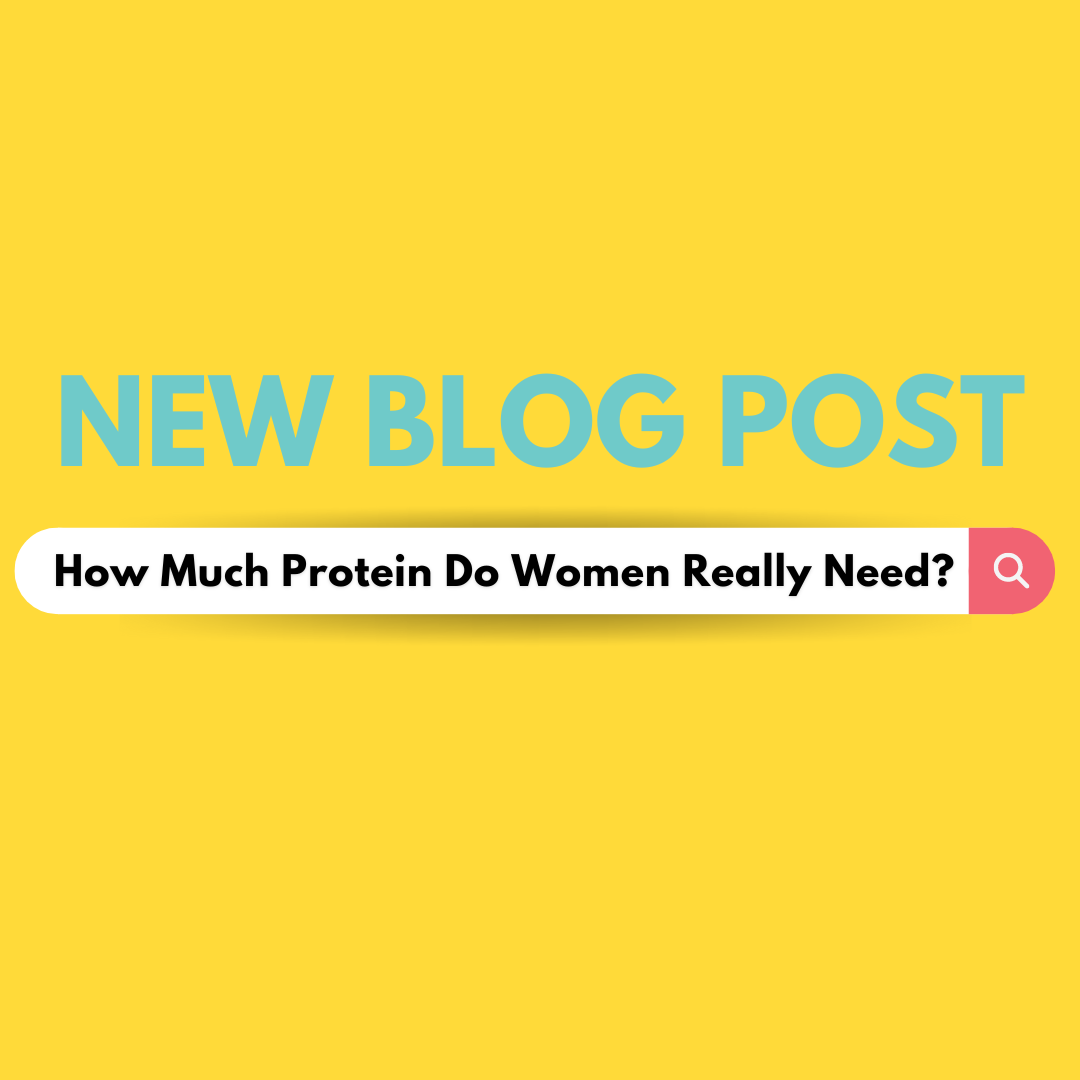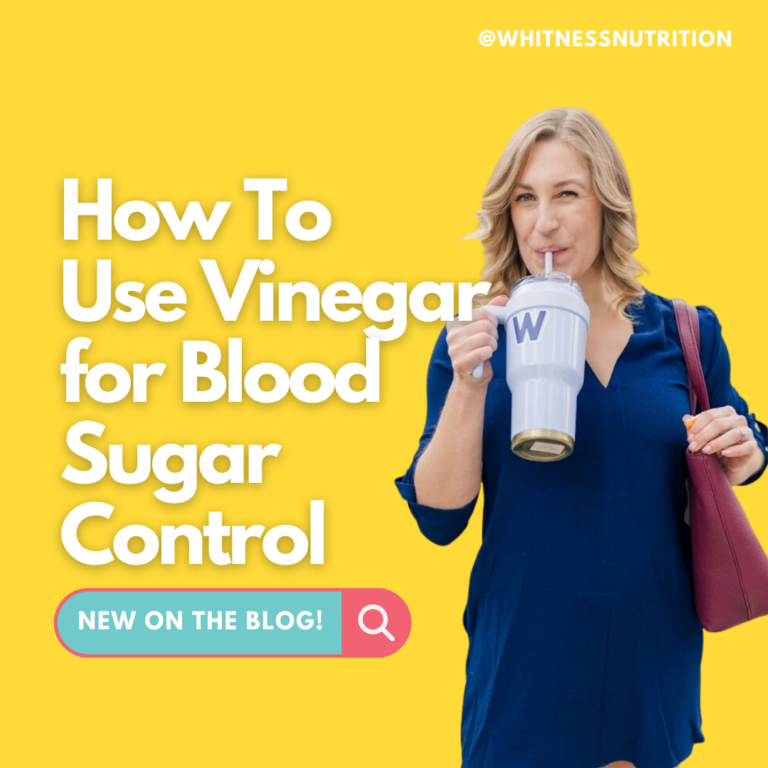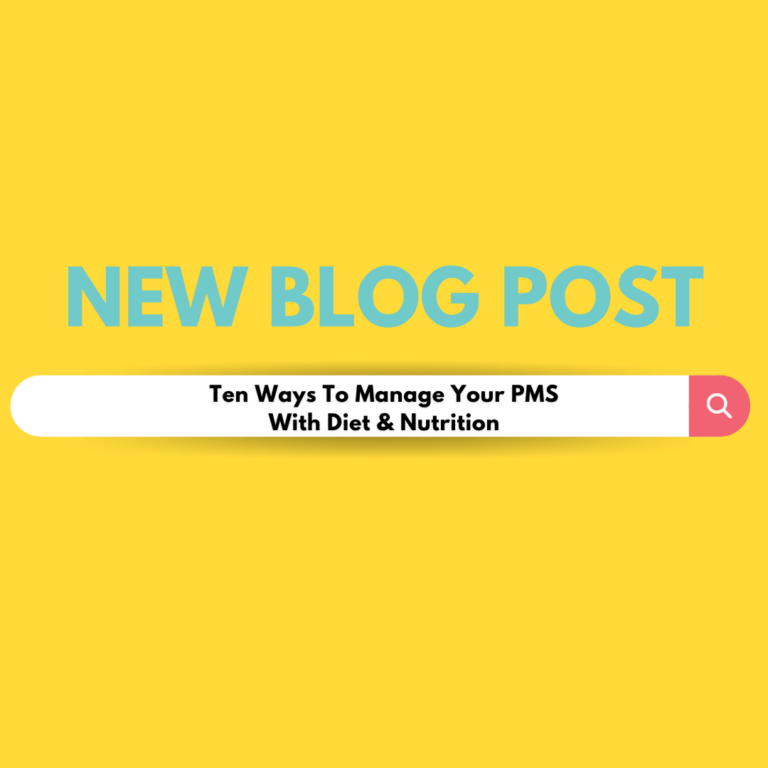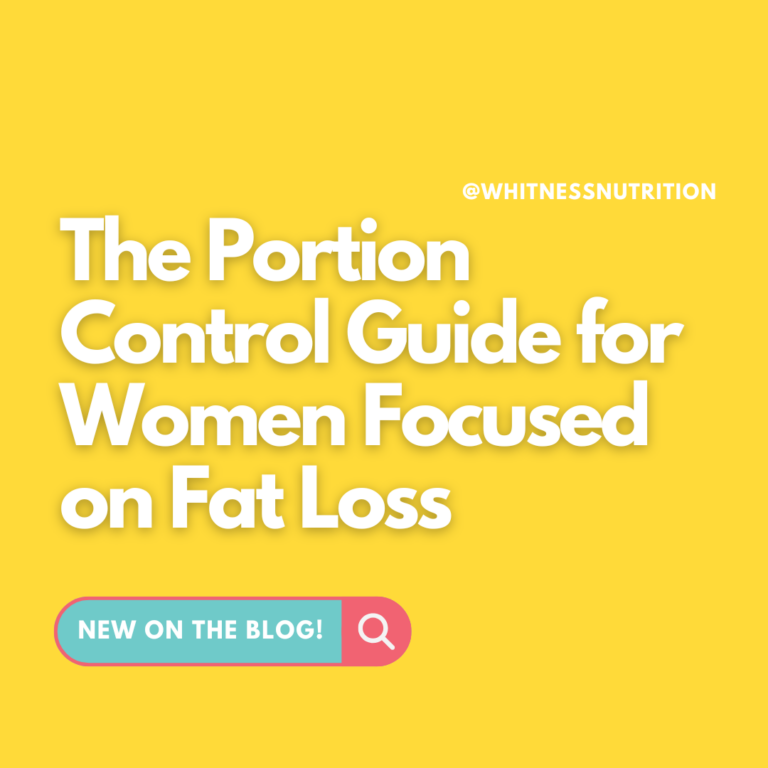How much protein should women eat per day?
There is a lot of mixed messaging out there regarding women and diet. Especially, if we consider the rise in eccentric and uneducated health information from influencers on Tiktok or Instagram. It’s common for my patients to feel confused after a weekend of social media scrolling. Do you feel overwhelmed and confused with all the information available on the internet? One of the most frequent questions I’m asked, and often one of the biggest nutrition gaps for women is regarding adequate protein intake.
How much protein should women eat per day?
Are you a female wondering how much protein you really need? Are you guilty of Googling the following?
- female protein intake to build muscle
- female protein intake for weight loss
- daily protein intake for muscle growth
- protein for women
- how much protein should a woman eat to gain muscle and lose weight
As a registered dietitian nutritionist and expert in sustainable nutrition choices, I’m here to provide clear answers!
Protein Intake: Women versus Men
Women and men function differently in numerous ways, with nutrition requirements being one of the biggest differences. Men metabolize protein differently than women. Typically, men need greater daily protein intake to support the greater amount of muscle mass men naturally have versus women.
But, protein is important for both men and women. Protein breaks down into the building blocks of amino acids, helps maintain muscle and muscle growth and it gives you energy. It also helps you feel fuller, longer. Notably, protein intake in women is especially important to help with bone mineral density; the higher your bone mineral density is, the less risk of osteoporosis.
It’s important to note: while plant proteins are beneficial to the human body, it is the animal proteins that help with increasing bone mineral density. As women age, maintaining adequate protein intake also helps to build muscle and improve body composition.
Generally, women need roughly 1.2-2.0 grams of protein per kilogram. These protein needs can ebb and flow for women, depending on exercise regimen, if you’re pregnant, and your age. As a rule of thumb, I start my patients who are looking to support fat loss and improved body composition at a goal of 100g of protein per day. This should mean a goal of 30g of protein per meal.
How do I know how much protein I need?
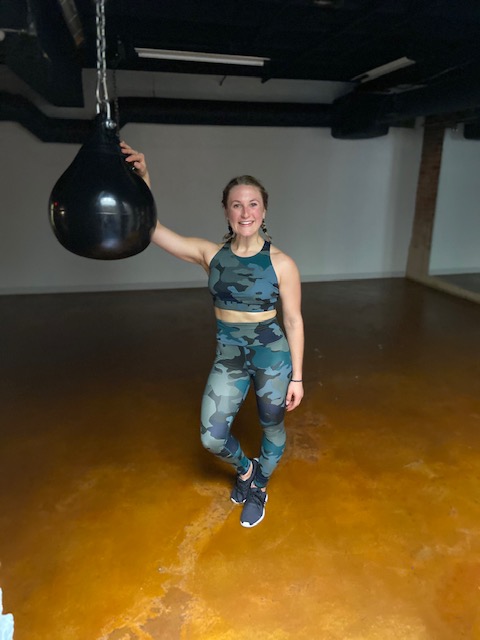
There are a lot of variables that go into determining how much protein an individual needs per day. What your baseline health is, if you’re male or female; if your health focus is building muscle or fat loss. All of these things can affect how much protein you need per day.
For athletes or those who consider themselves moderately active, aiming for 1.4-2.4 g/kg daily will help you improve your body composition, build muscle, and can aid in recovery.
If you’re an adult and live a more sedentary lifestyle, then aiming for 1.2 g/kg of protein per day will be ideal for assisting your body with immune function and satiety at meal times.
Does protein intake, and nutrition in general make your head spin? Work with me and I will create customized nutrition recommendations based on your goals!
Why is protein important for fat loss?
Additionally, protein intake helps so much with satiety and energy. A lot of times, my patients come to me, struggling with weight loss and talking about how they just can’t stop snacking. The usual culprit? Inadequate protein intake. The easiest way to ensure you can get from one meal to the next without 4 snacks is eating enough protein!
Excessive snacks are a sign of inadequate meals. Take action! Aim for a palm sized portion of protein at each meal. Paired with 1-2 thumbs of fat, ½ plate of veggies and some complex carbohydrates, you’ve built a satisfying meal! Check out my blog for some more information on ways to build balanced meals; a format I like to call VPFC; focusing on veggies, protein, fats and carbs at each meal.
Different Types of Proteins
Complete versus incomplete
Complete proteins contain all nine amino acids that our bodies cannot produce. Below is a list of what foods are considered complete proteins:
- Chicken
- Eggs
- Fish
- Beef
- Pork
- Whole sources of soy such as tofu, and edamame
- Dairy
As you can see from the list above, all complete protein sources mostly come from animals or animal products. It’s important to vary the types of proteins you eat as well, because each kind of animal protein offers many different vitamins and minerals. For example, red meat such as beef and pork contain iron, vitamin B12 and zinc. Meanwhile, fish sources like salmon or tuna contain those heart-healthy omega-3s, iodine and magnesium. Eggs (especially the yolks!) contain choline, selenium and iodine.
The bottom line is: varying your protein sources ensures your diet naturally provides all the great micronutrients your body needs to avoid deficiencies and stay in optimal health.
Incomplete proteins contain some, but not all, of the aminos acids our bodies need to function. Sources of incomplete protein include:
- Nuts,
- Seeds
- Legumes
- Whole grains
- Vegetables.
This kind of protein comes from plant-derived sources, and contains a lot of the micronutrients, such as vitamins and minerals, that we can’t get from meat! There are small amounts of plant proteins in each of the sources above, but the best thing those incomplete protein sources provide us with is fiber! Fiber is found in fruits, vegetables, legumes and whole grains; it includes the parts of plants that your body can’t break down. Further, fiber is important in helping to maintain a healthy diet, decrease your risk of diabetes, and maintain bowel health.
Plant proteins also give us some heart healthy fats, are a great source of antioxidants and contain no dietary cholesterol.
Do I need incomplete protein…?
The words incomplete versus complete could leave you to think “bad” versus “good”, which is not the case. A good combination of complete and incomplete proteins are essential for a balanced diet, and a well-nourished body! Research shows that the more diversity in your diet, the more likely you are to have a diverse and healthy gut microbiome and also a healthy relationship with food!
When it comes to optimizing fat loss and sustainable health, both complete and incomplete proteins bring great attributes to the table. But, to prioritize the most quality caloric bang for our buck; focus on complete proteins for protein and incomplete protein for fiber. Otherwise, we see unnecessary calories pile on quickly.
The Worst Ways to get 30g protein –
It would take 8 TB of Peanut Butter to get 30g protein. That would be 720 calories! And that’s even with no sugar added peanut butter!
Consuming oats to get in your 30 grams of protein would look like 2.5 cups of oats, adding up to 950 calories, and not to mention 165 grams of carbohydrates alone. There are better (and more tasty!) protein options, ladies!
Brown rice contains protein, sure, but it would take 2.5 cups and a whopping 1,700 calories later just to meet the 30 grams of protein recommendation. You (and your blood sugar) are much better off if you pair one serving of brown rice with a protein and a heap of veggies!
A Registered Dietitian’s best tips for getting protein!
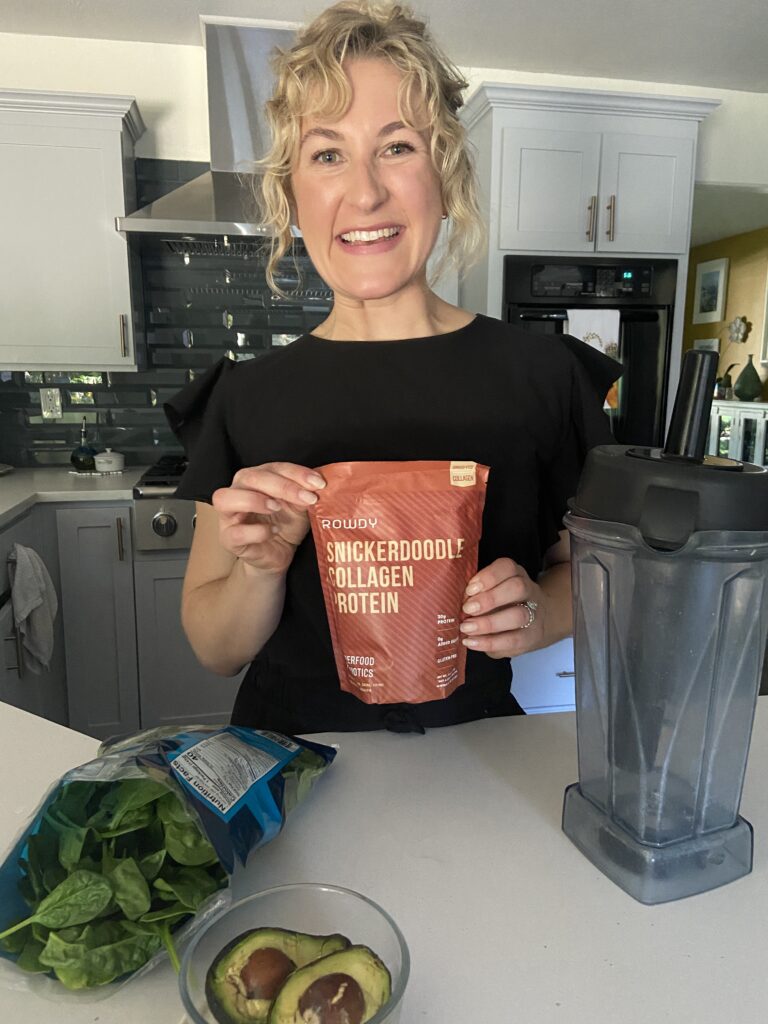
When you first shift your focus to trying to get more protein into your diet, it can feel overwhelming! “I don’t want to just eat meat!”. I hear you. Here are some easy ways to get more protein in your diet!
- Aim for a palm size serving of protein at meal times
- Add collagen to your coffee; it’s tasteless and mixes in really well. Grab chocolate collagen for a little extra flavor!
- Ensure your snacks have protein; a hard-boiled egg, meat stick, etc. No lonely carbs!
- Add protein powder to smoothies and baked goods such as waffles or pancakes.
- Sub a protein-packed EggLife wrap instead of a regular one! I promise, the texture is very similar and holds up well for #TacoTuesdays!
Snack combos for moms on-the-go
Below are some great options for on-the-go protein packed snacks! As a new mom, I know how important it is to stay well fueled and nourished; and I also know it isn’t always easy!
Protein is important to focus on and get enough of to help keep my energy up, and my blood sugar balanced while I’m caring for Baby J! P.S. Did you know that breast-feeding moms require up to 500 extra calories per day because of how metabolically taxing it is? Wild!
Protein-rich snacks to keep your energy up – whether you’re a mama, athlete, corporate boss, or all three!
- Meat stick + carrots + hummus
- 2 hard-boiled eggs + almonds + grapes
- Greek yogurt with chia seeds + berries
- B.T.R bar + celery + nut butter
- Nitrate-free turkey slices with raw cheese + apple
Do you need protein and nutrition recommendations specific to your lifestyle and goals, tired of constantly feeling hungry, or not making the muscle gains you want to? Join the Whitness waitlist or secure an appointment time today to feel empowered to take your health into your own hands!
